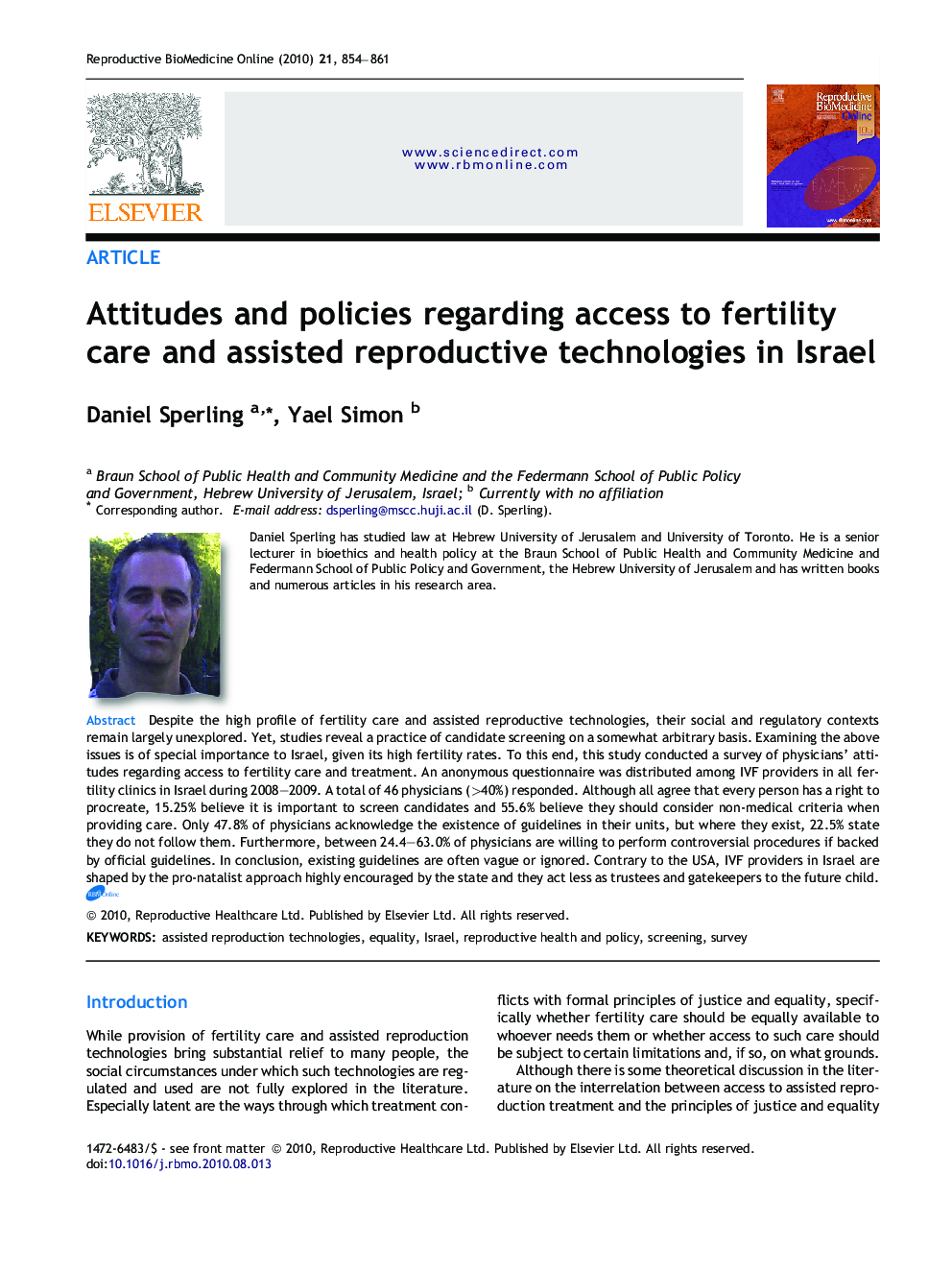| Article ID | Journal | Published Year | Pages | File Type |
|---|---|---|---|---|
| 3971496 | Reproductive BioMedicine Online | 2010 | 8 Pages |
Despite the high profile of fertility care and assisted reproductive technologies, their social and regulatory contexts remain largely unexplored. Yet, studies reveal a practice of candidate screening on a somewhat arbitrary basis. Examining the above issues is of special importance to Israel, given its high fertility rates. To this end, this study conducted a survey of physicians’ attitudes regarding access to fertility care and treatment. An anonymous questionnaire was distributed among IVF providers in all fertility clinics in Israel during 2008–2009. A total of 46 physicians (>40%) responded. Although all agree that every person has a right to procreate, 15.25% believe it is important to screen candidates and 55.6% believe they should consider non-medical criteria when providing care. Only 47.8% of physicians acknowledge the existence of guidelines in their units, but where they exist, 22.5% state they do not follow them. Furthermore, between 24.4–63.0% of physicians are willing to perform controversial procedures if backed by official guidelines. In conclusion, existing guidelines are often vague or ignored. Contrary to the USA, IVF providers in Israel are shaped by the pro-natalist approach highly encouraged by the state and they act less as trustees and gatekeepers to the future child.Despite the high profile of fertility care and assisted reproductive technologies, their social and regulatory contexts remain largely unexplored. While very few studies explore these issues, they all reveal a practice of candidate screening on a somewhat arbitrary basis. Examining the above issues is of special importance to Israel, given its high fertility rates. To this end, we conducted a survey of physicians’ attitudes regarding access to fertility care. A total of 46 physicians (>40%) from 17/24 IVF units responded to our survey. Although all accept the notion that every person has a right to procreate, 15.25% believe it is important to screen candidates and 55.6% believe they have both the duty and the ability to consider non-medical criteria when providing care. Only 47.8% of physicians acknowledge the existence of guidelines in their units, but where they exist, 22.5% state they do not follow them in most or all cases. Furthermore, between 24.4–63.0% of physicians are willing to perform controversial procedures if backed by official guidelines. We conclude that existing guidelines are often vague or ignored. Contrary to the USA, IVF providers in Israel are shaped by the pro-natalist approach highly encouraged by the state, and they regard themselves as professionally responsible for its promotion and advancement, acting less as trustees and gatekeepers to the future child.
